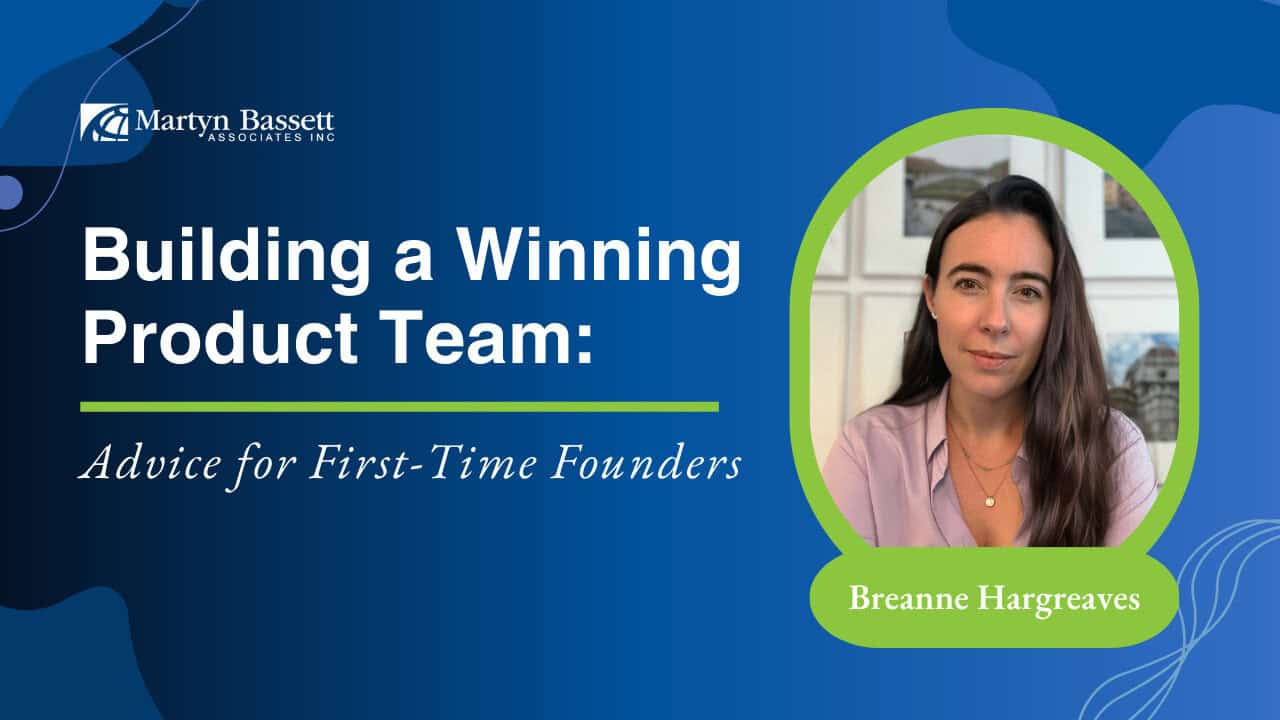Having an experienced leader to guide product development and growth strategies can make all the difference when looking to secure a next funding round. Today, we sit down with Breanne Hargreaves, Strategy & Growth Director at Evolving Web, an open-source web agency, and a mentor at APM Montreal.
Breanne’s extensive experience spans product development, marketing, business operations, and customer success, making her a key player in driving the success of numerous ventures.
Join us as we delve into Breanne’s insights on finding the right type of product leader for your startup and building a successful product and design organization:
You found product-market fit, built a product and design organization, and, along the way, some impressive VCs came on board to further fuel growth – what advice do you have for first-time founders on a journey to hiring their first Head of Product?
Think about what you need to complement your skills, especially if you are still a very small team. It’s crucial to identify the gaps in your expertise and find someone who can fill those gaps. For example, suppose you have a founder team with one ‘business’ brain and one passionate ‘technologist.’ In that case, you might need someone to mediate their conversations and translate their shared vision into reality.
To make the right choice of product leader, you need to know where you are on your product lifecycle journey. This clarity will help you set realistic goals and expectations for the new hire.
Different profiles of product leaders could be a fit, depending on your founding team and the complexity of your product:
Visionary Leader: If you are still unclear on key aspects of the product (target market, form factor, pricing, positioning, etc.), look for someone who can lead on that vision component and drive you through to product-market fit. This type of leader excels at setting a clear direction and inspiring the team to achieve it.
Practice Leader: If you need someone to organize your product practice, find a leader who is experienced in the day-to-day realities of product management and has worked in various contexts or businesses. This person should be able to bring processes, routines, and discipline to your teams.
Technical Leader: If you have a highly technical product, it might be pragmatic to hire someone with industry or technical experience alongside their product management skills. This ensures they can understand the product and the needs of the target market well enough to drive decision-making.
Talk about decision-making regarding the first hires for a product team. What skill/experience gaps did you need to close first and why?
When making your first hires for the product team, think carefully about the operating model that will work for you and the skills you are missing in the current team.
For myself, with a highly technical product, it was critically important to have at least one of my first product hires be very comfortable with the tools of the industry and the landscape we were working to serve. This expertise ensured that our product development stayed aligned with industry standards and real customer needs.
I always tried to maintain a balance of people with more product management experience and those with more specific industry experience as I built out the team. This blend allowed us to benefit from broad product management insights while staying deeply connected to our customers’ specific challenges.
Looking back on your own experiences, what would you want first-time founders to know about the value product management brings to a startup and why it’s foundational to building a world-class product and business?
Founders often have a very clear vision of the problem and an initial vision of the product, but they won’t necessarily have the time or attention to focus on the detailed decisions around the execution of that vision as the business scales. A skilled product manager will pick-up the baton and keep pushing that vision forward.
Everyone in the business has their bias; technology teams love tech, founders need fundraising stories, and sales teams need to sell. Having a product team allows you to mitigate any undue influence of a specific, narrowly focused group over the mission to find product-market fit and build the best product for each growth stage.
Product management also often provides a unique lens on customers. Hiring a really customer-centric leader can bring immense value, offering relevant insights beyond just the product sphere (customer experience, sales, marketing, etc.) They help ensure that the product evolves based on real customer feedback and needs.
When you have a small engineering team, what you prioritize and how you break down initiatives can make all the difference in the success of what you build and your ability to prove or disprove hypotheses quickly. Effective prioritization and initiative breakdown help maintain focus and drive progress.
I think founders often underestimate how valuable it is to have someone focused on the micro-decisions happening in product development day in and day out. A dedicated product manager ensures that every small decision aligns with the larger vision and strategy.
____________________________
Breanne’s journey through the startup realm highlights the importance of strategic hiring, particularly when it comes to product management. Her advice to first-time founders underscores the need to complement existing skills within the team and to prioritize a balanced approach in building a product organization. By focusing on product management, startups can ensure that every decision aligns with their larger vision and strategy, ultimately driving success and growth. Breanne’s insights offer invaluable guidance for those looking to navigate the complexities of startup growth and build world-class products and businesses.
